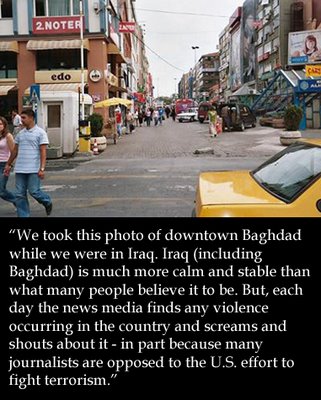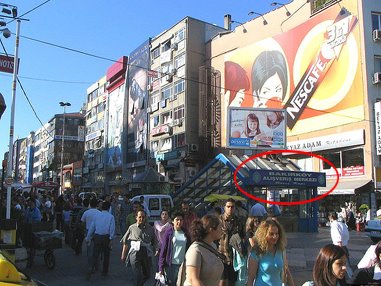I've been waiting for a story like this...
Here's the story: Howard Kaloogian is a Republican candidate running in the upcoming congressional special election in San Diego. On his website he posted the following photograph and caption:

Does that look like Baghdad to you? Some people have pointed out that the signs have Roman characters, and not Arabic. Well, I don't know if that means anything. On any given day I see signs with Arabic, Chinese, Korean, Japanese, and Devanagari scripts. (Granted, Toronto is a little more culturally diverse than Baghdad!)
Still, there was more than a few things that are a little strange about the picture. It didn't take long before it was identified as Turkey, and this photograph taken by a Turkish photographer confirmed the point:

Clearly it is the same intersection. And it shows a sign, only partially seen in the Kaloogian picture, which I've encircled in red. It says "Bakırköy," which is a suburb of Istanbul. Over 1600 km from Baghdad.
The original picture has been removed from Kaloogian's site, and replaced with a new one, a distant shot of Baghdad, and a new caption claiming it was a "mistake."
The only mistake was thinking they could pull a stunt like that and get away with it.




